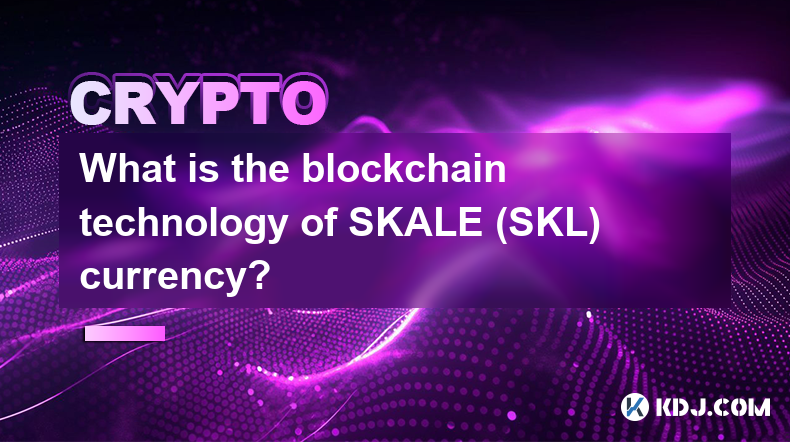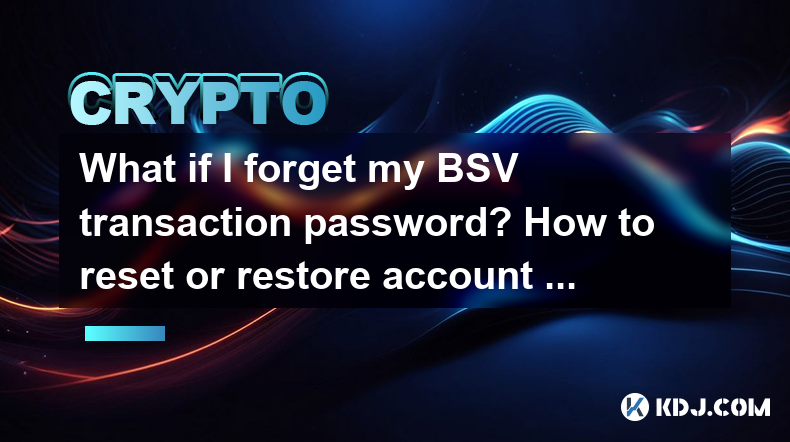-
 Bitcoin
Bitcoin $96,259.0256
-1.43% -
 Ethereum
Ethereum $1,827.1925
-1.60% -
 Tether USDt
Tether USDt $1.0007
0.03% -
 XRP
XRP $2.2050
-1.17% -
 BNB
BNB $598.8052
-0.48% -
 Solana
Solana $147.8257
-2.13% -
 USDC
USDC $1.0002
0.02% -
 Dogecoin
Dogecoin $0.1772
-3.40% -
 Cardano
Cardano $0.7168
0.75% -
 TRON
TRON $0.2462
-0.33% -
 Sui
Sui $3.3255
-4.06% -
 Chainlink
Chainlink $14.3452
-4.11% -
 Avalanche
Avalanche $20.7527
-3.94% -
 Stellar
Stellar $0.2716
-2.11% -
 UNUS SED LEO
UNUS SED LEO $8.9518
0.28% -
 Toncoin
Toncoin $3.1357
-1.38% -
 Shiba Inu
Shiba Inu $0.0...01310
-3.97% -
 Hedera
Hedera $0.1822
-3.21% -
 Bitcoin Cash
Bitcoin Cash $365.8336
-4.20% -
 Hyperliquid
Hyperliquid $20.5753
-3.60% -
 Litecoin
Litecoin $86.2624
-2.98% -
 Polkadot
Polkadot $4.0828
-3.27% -
 Dai
Dai $1.0001
0.00% -
 Monero
Monero $279.1704
-3.90% -
 Bitget Token
Bitget Token $4.3838
-2.08% -
 Ethena USDe
Ethena USDe $1.0007
-0.02% -
 Pi
Pi $0.5838
-1.87% -
 Pepe
Pepe $0.0...08279
-7.07% -
 Aptos
Aptos $5.1907
-5.78% -
 Uniswap
Uniswap $5.1262
-3.76%
What is the blockchain technology of SKALE (SKL) currency?
SKALE (SKL) empowers developers to build scalable dApps, games, and enterprise solutions by partitioning applications onto separate SKALE Chains and leveraging parallelization for increased transaction throughput.
Dec 07, 2024 at 01:35 am

Understanding SKALE (SKL): A Guide to Its Blockchain Technology
SKALE (SKL) stands as a pioneering blockchain platform powering a decentralized network of interconnected validators known as SKALE Chains. Built on the Ethereum network, SKALE operates as a layer-2 solution, extending Ethereum's capabilities and resolving its scalability limitations. By introducing SKALE Chains, SKALE enables the creation of highly scalable and customized blockchain applications, opening up new possibilities for decentralized applications (dApps), games, and enterprise solutions.
Foundation: Ethereum Network Integration
SKALE's technological foundation lies in its seamless integration with the Ethereum network. As a layer-2 solution, SKALE leverages the security and decentralization of Ethereum while operating independently of the Ethereum main chain. This symbiotic relationship allows SKALE to inherit Ethereum's established ecosystem and smart contract functionality, providing a secure and trusted platform for developers.
Modular Architecture: SKALE Chains
The core of SKALE's blockchain technology revolves around its modular architecture, featuring interconnected SKALE Chains. These chains function as independent blockchain networks, each designed to support specific dApps or use cases. By isolating applications onto separate chains, SKALE effectively partitions the computational load, reducing congestion and latency on the Ethereum main chain.
Scalability Through Parallelization
SKALE's unique design enables scalability through parallelization. Multiple SKALE Chains can operate concurrently, processing transactions and executing smart contracts in parallel. This horizontal scaling capability dramatically increases the transaction throughput and overall capacity of the SKALE network, addressing Ethereum's scalability challenges.
Flexibility and Customization
SKALE empowers developers with an unprecedented level of flexibility and customization. SKALE Chains can be tailored to the specific needs of different applications, enabling developers to select their preferred consensus mechanisms, block sizes, and other configurable parameters. This flexibility fosters innovation and experimentation, supporting the development of bespoke blockchain solutions for various industries.
Interchain Communication
Despite operating as independent entities, SKALE Chains maintain interoperability through cross-chain communication protocols. This seamless communication allows applications deployed on different chains to interact and exchange data, facilitating the creation of complex and interconnected dApp ecosystems.
SKL Token: Fueling the SKALE Network
The SKL token serves as the lifeblood of the SKALE network, performing several critical functions. It incentivizes validators to participate in the network by providing rewards for validating transactions and securing SKALE Chains. Additionally, SKL facilitates interactions between different chains and enables the payment of transaction fees on the SKALE network.
Conclusion
SKALE's innovative blockchain technology addresses the scalability constraints of Ethereum, making it a powerful platform for building and deploying scalable decentralized applications. Its modular architecture, customizable SKALE Chains, and parallelized processing capabilities enable developers to create highly performant and tailored blockchain solutions. With its integration with Ethereum and the versatile SKL token, SKALE positions itself as a promising solution for unlocking the full potential of blockchain technology.
Disclaimer:info@kdj.com
The information provided is not trading advice. kdj.com does not assume any responsibility for any investments made based on the information provided in this article. Cryptocurrencies are highly volatile and it is highly recommended that you invest with caution after thorough research!
If you believe that the content used on this website infringes your copyright, please contact us immediately (info@kdj.com) and we will delete it promptly.
- Remember When Avalanche ($AVAX) Launched Its ICO at Just $0.50? Now, Qubetics ($TICS) Presents a Similar Opportunity
- 2025-05-04 00:10:13
- Have You Ever Wondered Which Crypto Projects Will Actually Survive the Hype and Hold Long-Term Value?
- 2025-05-04 00:10:13
- Bitcoin (BTC) Price Predictions Range from $122,000 to a Staggering $700,000
- 2025-05-04 00:05:12
- Cardano Founder Charles Hoskinson Compares the Blockchain Solution's Governance System with Mainstream Politics
- 2025-05-04 00:05:12
- The meme coin mania is back—and it’s louder, weirder, and more profitable than ever
- 2025-05-04 00:00:52
- Troller Cat Presale Goes Wild with 10k% ROI as Brett Eyes $2B MarketCap and Neiro Hits ATH
- 2025-05-04 00:00:52
Related knowledge

BSV transaction fees suddenly increased? How to adjust the handling fee to save costs?
May 02,2025 at 06:42am
Understanding BSV Transaction FeesBSV (Bitcoin SV) aims to fulfill the original vision of Bitcoin as a peer-to-peer electronic cash system. One of the key elements in this system is the transaction fee, which compensates miners for including transactions in the blockchain. Recently, users have noticed a sudden increase in BSV transaction fees, which can...

Does BSV transaction require real-name authentication? Is anonymous trading feasible?
May 03,2025 at 03:14pm
The question of whether BSV (Bitcoin SV) transactions require real-name authentication and whether anonymous trading is feasible is a complex one, deeply intertwined with the broader dynamics of cryptocurrency regulations and blockchain technology. Let's delve into these aspects to provide a comprehensive understanding. Understanding BSV and Its Transac...

How to solve the high slippage of BSV transactions? How to choose between limit and market orders?
May 02,2025 at 09:01pm
High slippage can be a significant concern for traders dealing with Bitcoin SV (BSV) transactions. Slippage refers to the difference between the expected price of a trade and the price at which the trade is actually executed. This can occur in fast-moving markets or when there is low liquidity. To address this issue, understanding the mechanics of slipp...

What if BSV node synchronization is slow? How to optimize local wallet performance?
May 03,2025 at 04:35pm
When dealing with BSV (Bitcoin SV) node synchronization and optimizing local wallet performance, it's crucial to understand the underlying issues and implement effective solutions. Slow synchronization and poor wallet performance can significantly hinder your experience with the BSV network. This article will delve into the reasons behind slow BSV node ...

How to check BSV transaction records? How to use the blockchain browser?
May 03,2025 at 06:50am
Checking BSV (Bitcoin SV) transaction records and using a blockchain browser are essential skills for anyone involved in the cryptocurrency space. These tools allow you to verify transactions, check wallet balances, and understand the flow of funds on the blockchain. This article will guide you through the process of checking BSV transaction records and...

What if I forget my BSV transaction password? How to reset or restore account permissions?
May 02,2025 at 02:49pm
Forgetting your BSV (Bitcoin SV) transaction password can be a stressful experience, but there are steps you can take to reset or restore your account permissions. This article will guide you through the process, ensuring you understand each step and potential solutions available to you. Understanding BSV Transaction PasswordsBSV transaction passwords a...

BSV transaction fees suddenly increased? How to adjust the handling fee to save costs?
May 02,2025 at 06:42am
Understanding BSV Transaction FeesBSV (Bitcoin SV) aims to fulfill the original vision of Bitcoin as a peer-to-peer electronic cash system. One of the key elements in this system is the transaction fee, which compensates miners for including transactions in the blockchain. Recently, users have noticed a sudden increase in BSV transaction fees, which can...

Does BSV transaction require real-name authentication? Is anonymous trading feasible?
May 03,2025 at 03:14pm
The question of whether BSV (Bitcoin SV) transactions require real-name authentication and whether anonymous trading is feasible is a complex one, deeply intertwined with the broader dynamics of cryptocurrency regulations and blockchain technology. Let's delve into these aspects to provide a comprehensive understanding. Understanding BSV and Its Transac...

How to solve the high slippage of BSV transactions? How to choose between limit and market orders?
May 02,2025 at 09:01pm
High slippage can be a significant concern for traders dealing with Bitcoin SV (BSV) transactions. Slippage refers to the difference between the expected price of a trade and the price at which the trade is actually executed. This can occur in fast-moving markets or when there is low liquidity. To address this issue, understanding the mechanics of slipp...

What if BSV node synchronization is slow? How to optimize local wallet performance?
May 03,2025 at 04:35pm
When dealing with BSV (Bitcoin SV) node synchronization and optimizing local wallet performance, it's crucial to understand the underlying issues and implement effective solutions. Slow synchronization and poor wallet performance can significantly hinder your experience with the BSV network. This article will delve into the reasons behind slow BSV node ...

How to check BSV transaction records? How to use the blockchain browser?
May 03,2025 at 06:50am
Checking BSV (Bitcoin SV) transaction records and using a blockchain browser are essential skills for anyone involved in the cryptocurrency space. These tools allow you to verify transactions, check wallet balances, and understand the flow of funds on the blockchain. This article will guide you through the process of checking BSV transaction records and...

What if I forget my BSV transaction password? How to reset or restore account permissions?
May 02,2025 at 02:49pm
Forgetting your BSV (Bitcoin SV) transaction password can be a stressful experience, but there are steps you can take to reset or restore your account permissions. This article will guide you through the process, ensuring you understand each step and potential solutions available to you. Understanding BSV Transaction PasswordsBSV transaction passwords a...
See all articles




















































































